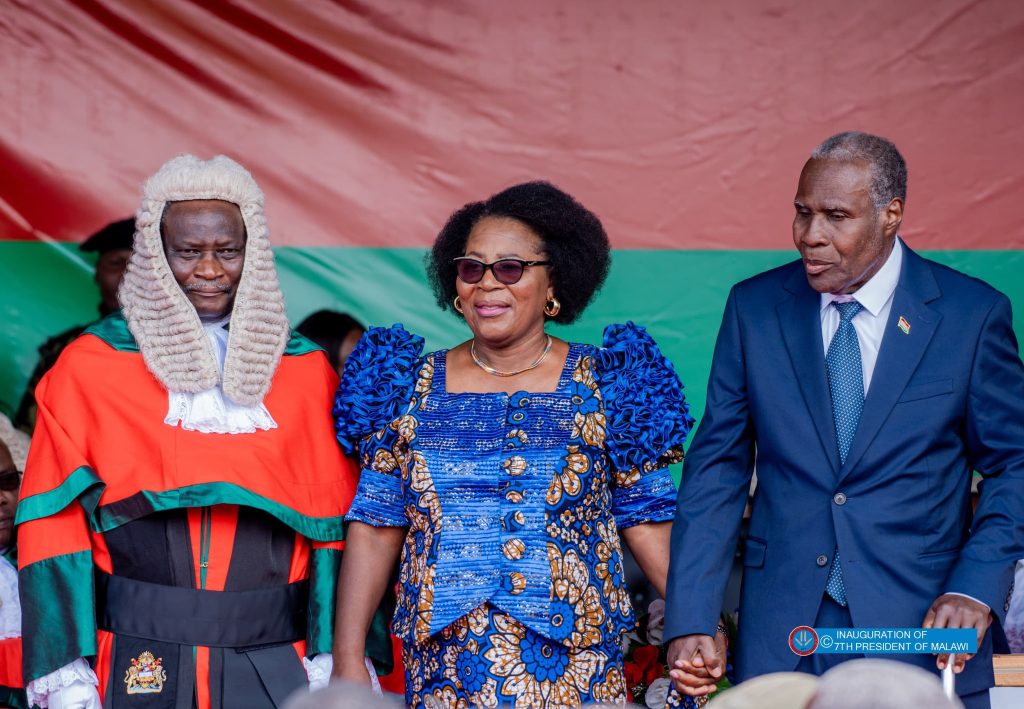A Nation’s Quiet Lesson in Loyalty and Power
Malawi has decided. Malawi has chosen. A small country, yet time and again proving that size does not confine destiny. On her knees in anguish, with disbelief clouding every conversation and every street corner whispering uncertainty, Malawi went to the polls once again. The people stood before history and said: not again, not this way. But when the results came, the story twisted with the irony of a Greek tragedy — the man they once removed, Professor Arthur Peter Mutharika, found himself once more walking the red carpet of power. The same seat that had been vacated in pain and protest was dusted clean and prepared for his return.
The air was thick with déjà vu. For those who remembered the Tonse Alliance, the dream that once painted the sky with hope and hymns of change, it was hard to reconcile the vision and the aftermath. Dr. Lazarus McCarthy Chakwera and the late Dr. Saulos Klaus Chilima had risen with a promise so intoxicating it felt divine: jobs, affordable fertilizer, and three meals a day. For the common man, it was as if God Himself had finally heard the cries from the villages. But dreams are fragile things. Soon inflation gnawed through the pockets of ordinary citizens, fuel queues became metaphors for despair, and fertilizer shortages turned into national heartbreak. By the time people went back to the polls on 16th September, they were not voting for perfection; they were voting for relief. “Bola chimanga chija,” the old woman muttered in the queue, better the maize we know than the hunger we can’t bear.
When the dust settled, the people had spoken. Mutharika was President-elect once more. His return was no rerun; it was definitive, absolute. As the nation prepared for his inauguration on the morning of the 4th of October, the city of Blantyre transformed into a theatre of spectacle. Kamuzu Stadium gleamed in anticipation; the soldiers marched in precision, their uniforms crisp as morning frost. Dignitaries and heads of state descended upon the city, each with a protocol officer guiding them through the choreography of diplomacy. The scene was a masterclass in statecraft. Watching from my maroon couch at home, I felt the pulse of the moment, the kind of order and ceremony that every student of governance dreams of witnessing.
The man who had once written the preface to my book, Working for Citizen Number 15, Mr. Harvey Chigumula, stood at the helm of protocol. Every movement, every bow, every flag, was a note in a national symphony. Then came the moment the world waited for, the President-elect’s arrival. The stadium erupted into a sea of blue. Songs of victory rose into the Blantyre sky, and in that electric moment, I noticed two figures who told stories deeper than politics itself.
The first was Mr. Norman Chisale, dressed in a blue suit, walking beside the President as he had done for over a decade. Once dismissed by many, he now stood before the nation, not as a shadow of controversy but as a symbol of rare loyalty. Through trials, public ridicule, and political storms, he never wavered from his principal. Watching him, I thought of my own journey standing by a minister through turbulent seasons, the moments when loyalty is not glamorous but costly. And yet, when the tide turns, it speaks louder than any title.

Then the stage shifted to the Vice President-elect. As Rt. Hon. Justice Dr. Jane Ansah stood ready to take her oath, her husband, Dr. Joseph Ansah, a man of silver hair and steady grace, walked slowly to her side, his cane tapping softly against the stage. Having travelled from the United Kingdom to witness this moment, he embodied the quiet strength behind her rise. As she reached out and stood tall beside him, there was a silence, a stillness that only love and history can create. In that instant, she reminded the nation that even at the summit of power, humility and honor remain the highest crowns.
Those two moments, Chisale’s unwavering service and Ansah’s tender respect, spoke more than any political speech could. They revealed that in a world hungry for progress, it is still loyalty and love that hold the spine of leadership. The current government may have faltered, may have been swallowed by missteps and internal discord that left citizens disillusioned, but Malawi’s story is one of memory and moral balance. The failures of one era have a strange way of cleansing the image of another, not because the past was perfect, but because disappointment forces nostalgia to look kinder than it was.
As I watched the ceremony conclude, with the flags dancing and the anthems echoing across the hills of Blantyre, I realized that Malawi had written yet another chapter in her complicated love story with democracy. Politics, after all, is not just about who wins; it is about what the nation remembers when the music fades. And on that day, as I sank deeper into my couch, I understood something profound: leadership may change hands, but loyalty, integrity, and grace are the currencies that never lose value.
2 comments
Vicky
Posted on October 7, 2025 at 7:13 pmWow beautiful ,the people truly came together on this one..
Aaron Kalua
Posted on October 7, 2025 at 9:51 pm✅✅